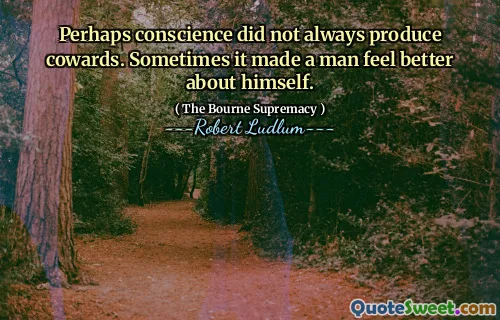
He may be a scholar, but he's first a man who believes-with certain justification-that he was betrayed by his government.
The quote highlights the internal conflict of a character who is both an intellectual and a deeply feeling individual. While he possesses scholarly qualities, his human experience of betrayal overshadows his academic achievements. This duality emphasizes the impact of personal feelings over professional identity, suggesting that his emotional journey is as significant as his intellectual pursuits.
Additionally, the reference to betrayal by his government reflects a broader theme of disillusionment within the narrative. It portrays a sense of injustice that fuels the character's motivations and actions. This betrayal suggests a profound sense of helplessness, challenging the notion that scholarly knowledge can shield one from the harsh realities of the world.











